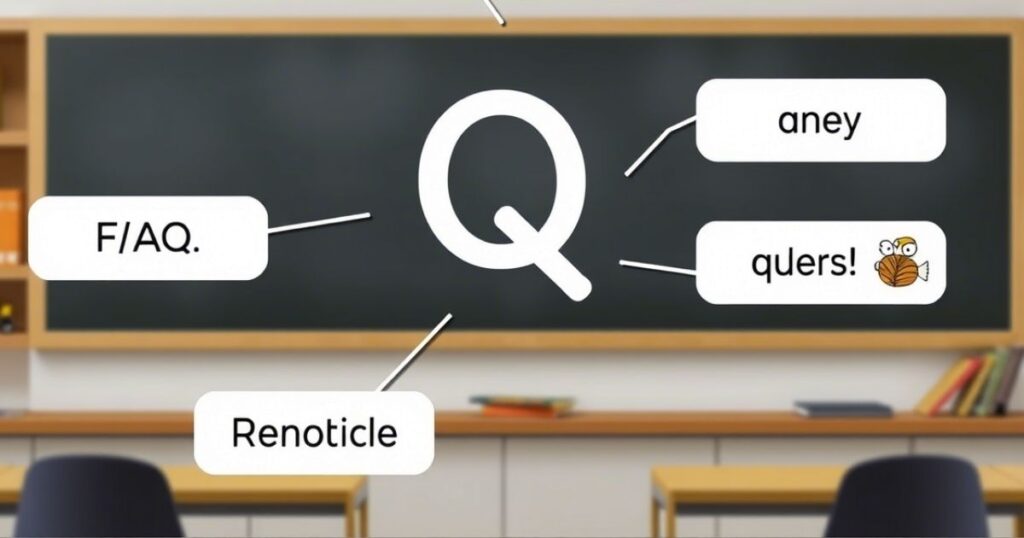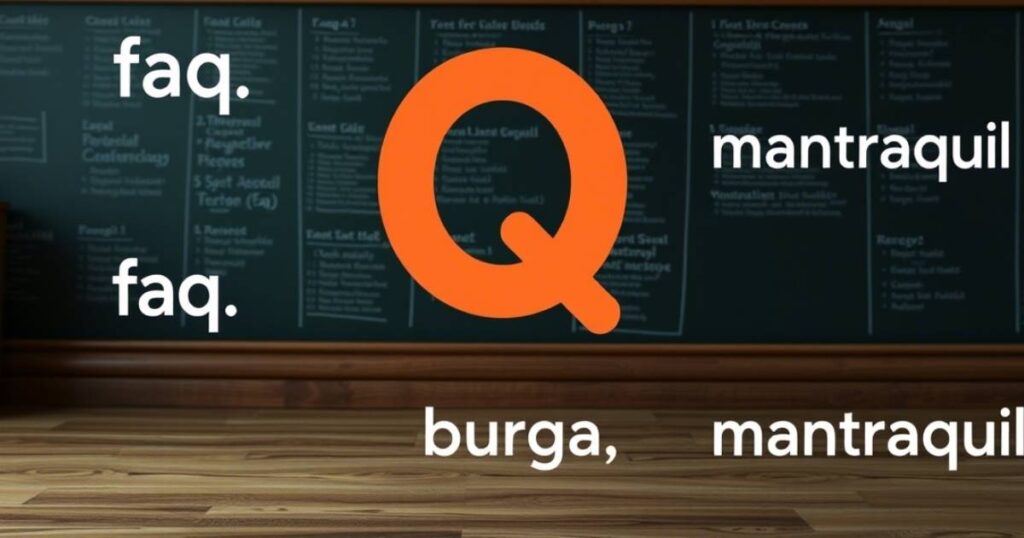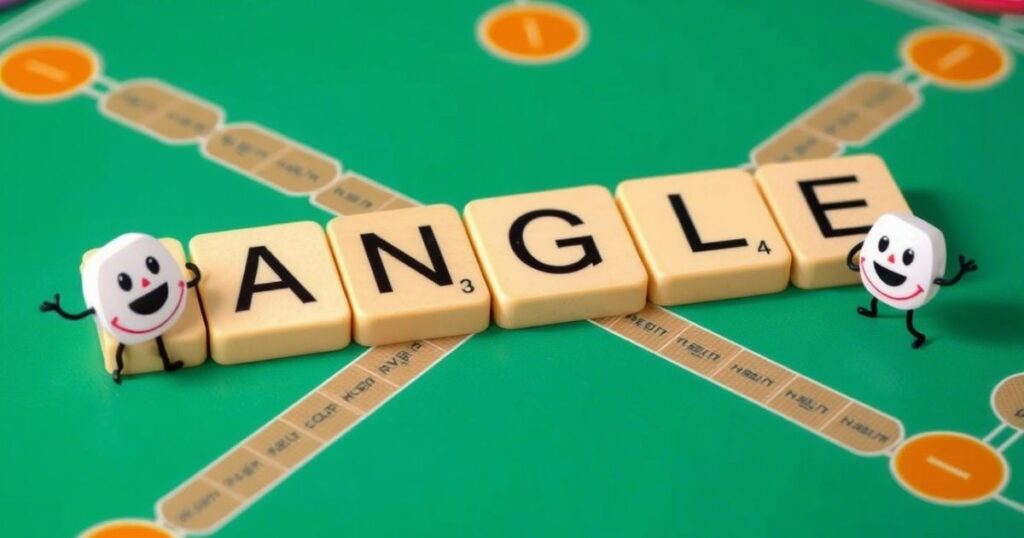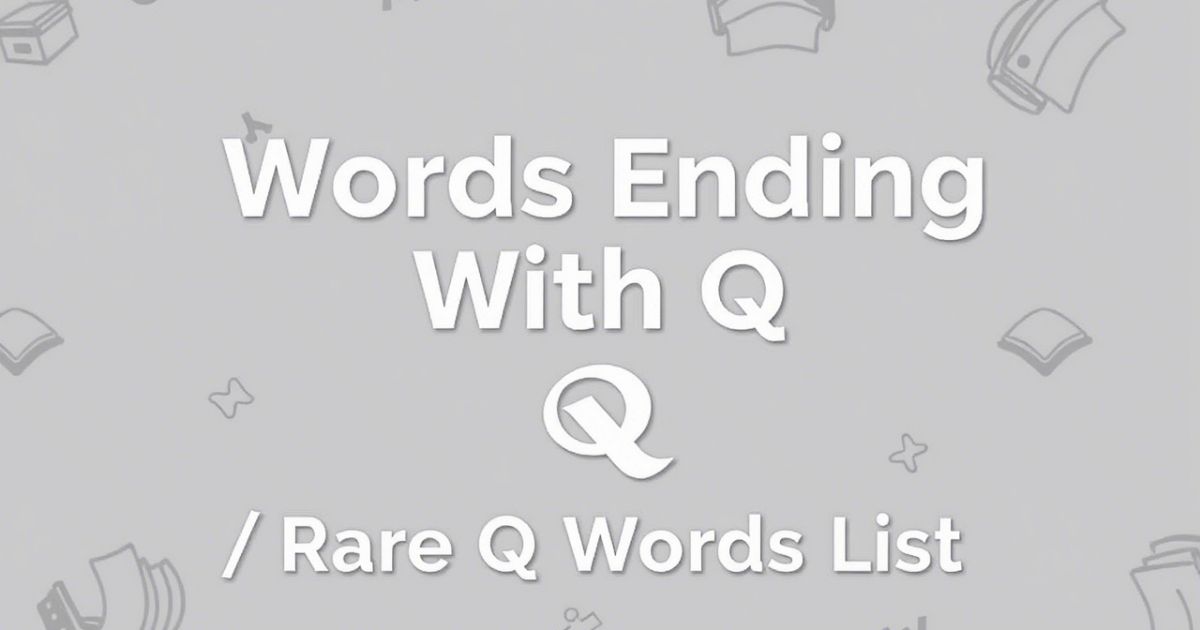Finding words ending with Q is tricky. In English, very few words follow this pattern. Most words with “Q” need a “U” after it. But some rare words break this rule. These words come from different languages, like Arabic, Inuit, and Hebrew. They add variety to the English lexicon and show how languages mix.
Many words ending with Q are loanwords. They come from cultures with unique spelling patterns. For example, “Suq” is an Arabic word for a market. “Talaq” comes from Islamic law. Inuit words like “Qajaq” and “Umiaq” describe traditional boats. These words are useful for Scrabble words and word games. They also help in language learning and understanding word origins. Knowing these rare words improves your vocabulary and spelling skills. If you love words, exploring words ending with Q is a fun challenge!
3-letter Words Ending with Q
Very few three-letter words in English end with Q. These words often come from other languages and are considered rare in everyday use. They are commonly found in historical, linguistic, and cultural contexts. Some are useful in word games and Scrabble, helping players score high points. Below are some interesting examples.
Suq
Suq (sometimes spelled souq) is an Arabic word meaning marketplace. It refers to traditional open-air markets in the Middle East and North Africa, known for selling goods like spices and textiles.
Taq
Taq is an architectural term from Arabic, meaning an arched doorway or niche. It is often used in Islamic architecture to describe decorative or structural arches in buildings.
These short words have unique origins and meanings. Studying them helps improve vocabulary and understanding of different languages. They also offer strategic advantages in word games.
4-Letter Words Ending with Q
Words like cinq illustrate the diverse origins of vocabulary in English. They provide insights into language learning and cultural exchange.
Cinq
Cinq (pronounced “sank”) is a French word that means five. While you won’t find it often in casual English conversation, it shows up in specific contexts, especially when talking about the French language or culture. You might encounter it in French lessons or when learning to count in French!
5-Letter Words Ending with Q

These words reflect different cultures and help expand English vocabulary. They offer valuable insights into word origins and language borrowing.
Qajaq
Qajaq is an Inuit word for a traditional kayak, originally made with wood and animal skin. It’s used for hunting in the Arctic, representing the ingenuity of Inuit culture.
Talaq
Talaq is a term in Islamic law referring to divorce. It’s significant in many Arabic-speaking cultures, with its use reflecting legal and cultural practices within Muslim communities.
Tranq
Tranq is a short form of tranquilizer, referring to a drug that calms or sedates. Often used in medical or casual settings, it appears in discussions about pharmaceuticals or animal care.
Umiaq
Umiaq is an Inuit word for a type of boat used for hunting and transporting goods. It’s larger than a kayak and was traditionally powered by multiple rowers.
6-Letter Words Ending with Q
This word represents the ingenuity of the Inuit people and showcases the practical, cultural aspects embedded in language. It also reflects how specific terms evolve to meet the needs of particular environments.
Qulliq
Qulliq is an Inuit word for a traditional oil lamp used to provide light and heat. Made from stone or metal, it was essential for survival in the Arctic regions.
7-Letter Words Ending with Q

These words highlight the rich linguistic history and cultural diversity that influence English. They provide valuable examples of how languages shape vocabulary and contribute to cultural understanding.
Kamotiq
Kamotiq is an Inuit word for a traditional sled used to transport goods across snowy terrains. It’s an essential part of Inuit culture, particularly in hunting and travel.
Tsaddiq
Tsaddiq is a Hebrew word that means “righteous” or “just.” It refers to a person who is morally upright, often used in religious or philosophical contexts within Jewish traditions.
Tzaddiq
Tzaddiq, a variation of Tsaddiq, also means “righteous” in Hebrew. It refers to a spiritual leader or a person who follows strict moral and religious principles in Jewish faith.
Related Guide:
Beautiful Similes for Sunset Imagery
Why Are These Words So Rare?
Words like Qajaq, Talaq, and Umiaq are rare in English because they come from languages with distinct phonetic and spelling rules. These words are often loanwords, borrowed from cultures that have unique traditions and practices. As a result, they don’t follow typical English patterns, making them stand out.
The rarity of these words also stems from their specific cultural significance. For example, many of these terms are linked to traditional practices, such as Inuit hunting or Islamic law, which aren’t common in daily English conversations.
Furthermore, English tends to borrow words from other languages only when needed, which limits their use. This is why these terms are often encountered in specialized contexts, not everyday speech.
Fun Fact: The Scrabble Angle

In Scrabble, some words might seem unusual, but they’re still valid. Words from different cultures and languages can give you a strategic edge. For example, words like “suq” and “talaq” might not be common in everyday English, but they’re acceptable in the game.
Playing these uncommon words can help score big points, especially when placed on double or triple letter scores. Mastering these rare words adds excitement to the game and gives players a deeper appreciation for language diversity and its influence on wordplay.
FAQ’s
What are some examples of words that end with Q?
Few English words end with Q. Some examples of words ending with Q are suq, talaq, qajaq and umiaq, which come from other languages.
Why do most words need a U after Q?
English spelling rules require Q to be followed by U. However, some words ending with Q are loanwords from Arabic, Inuit or Hebrew languages.
Are words ending in Q allowed in Scrabble?
Yes, some words ending with Q are valid in Scrabble. Words like suq, talaq and umiaq can help players score high points.
Which languages use words ending in Q?
Many words ending with Q come from Arabic, Inuit, and Hebrew. These languages have unique spelling rules that influence English vocabulary and linguistic history.
How can I learn more words that end with Q?
Studying words ending with Q helps expand your lexicon. Use word games, Scrabble lists, and etymology resources to improve your word spelling skills.
Conclusion
Learning words ending with Q is fun and useful. These words come from different languages like Arabic, Inuit and Hebrew. They show how language borrowing shapes English. Many of these words are loanwords with unique spelling rules. Examples like “suq,” “talaq,” and “qajaq” help in Scrabble strategy and word games. They also improve your vocabulary and knowledge of word origins.
English has many linguistic anomalies and words ending with Q are rare. Understanding them helps with phonetics, orthography and morphology. These words highlight language diversity and cultural influence on language. Studying them improves your grasp of historical linguistics and language evolution. They also make you better at word spelling and recognizing uncommon words. If you enjoy linguistics, exploring these words is a great way to learn. Keep discovering new words and expanding your lexicon every day!

Atlas Reid is an experienced administrator with 5 years of expertise in managing operations, streamlining processes, and ensuring efficiency. Skilled in leadership, organization, and problem-solving to drive business success.








